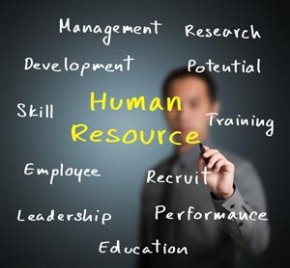
The Talent War is a well known battle to the HR professional about the historical problems, progress, and leading edge tactics used to attract and keep high profile candidates. It is a complex network of references, who knows who, reputation, personality traits, legacy, and social media. As start-up companies have their unique market to sell, what else could help them attract and keep talent? Luring quality profiles away from long standing organizations is an art, and the newest player to this battle is economic uncertainty.
One of the largest setbacks to recruiting is that the amount of quality candidates to recruit has diminished substantially for one main reason: economy. People are wary if they leave their present job that the grass really won’t be greener on the other side. Better the devil you know, than the devil you don’t if you’re thinking about transitioning. In addition to this setback, those who are looking to change fields or companies, are using recruiters to keep their transition confidential. Recruiters only check your most recent reference upon the job offer, not before. This gives the candidate a reasonable amount of privacy and respect to their current professional reputation. Here’s a few surefire ways to attract the best.
1) Culture, culture, culture. Just as realtors say “location, location, location”, a company is only as good as the people it hires, and as strong as its weakest link. For boomers, and the next two generations to follow, work culture was carved into 3 choices: Corporate, Non-Profit, Trades. Today, culture has over 50 different brands and labels like, Geek, Geekender, Polished, Tech, Chic, Trendy, Cook-Outs, Laid Back, Non-Vanilla, Butterscotch, Dilbert, The Office, Humble, Daily, and so many more… So if you’re unsure of what these mean, I suggest you grab an urban dictionary and check it out. My first main point is to know your culture. It’s not just HR who should know your culture, the CEO, COO, CAO, CFO, CSO, CCO, and their teams, should know the culture, how to describe it (have agreed on previous key words to use), how to market it, and how to keep it. A strong culture attracts like minded people and creates a “pack mentality”. If your employees feel they run in a pack together that is unique to them- they will be more ambitious to make referrals, attract business, and make their pack something to be sought after.
2) Social Media & Networking. One of the newest trends among start-up business’s and those who’s staff dominates the 20-35yr old age gap, is company blogs that focus on two things 1) company goals 2) and the culture that got them there. The culture is marketed in the blog through personality. The personality of who writes the blog will have a big impact on who it attracts. As for Linkedin, have a Linkedin account for your HR that is not personal, but strictly used to network and recruit. Have your HR use Linkedin, Twitter, FB, and check out Airbnb just so you know what you’re missing. So who’s running and deciding what the social media networks should and should not be? Millennials. The Millennials are the generation born between mid 1980’s and early 2000. Reasons following this are they have had a huge impact from their predecessor generation, GenX, who opened up the gates to evolving office culture and unleashing a whole new subcultre of personal lives for comedy clubs and trends like Black Adder, Kids in the Hall, Simpsons, Saved by the Bell, News Radio, Friends, and the most recent addition to all this for the newest generation, Silent Generation, Family Guy. This humor and the scenarios used to play them out have reshaped the value system for the Millennial kids, and in addition they have watched so much of it on computers, cell phones, ipads, or something else other than a television it has taught them that face to face conversation is not the first medium to use when networking. This is the generation that is deciding on appropriate platforms, criticising and testing them in accordance with their needs- and so far, it’s working.
Having a company blog helps to gather followers, and regular contributors. You get to know your audience, and all of a sudden it acts as a recruiting pool. This is hugely convenient! In addition it keeps the company in the loop with what others are posting and networking about. Even if your company doesn’t have a blog, to succeed with recruitment, it should have at least* Linkedin.
3) Rodriguez vs Roberts. I covered this in another post, that the number one untapped source of recruitment are individuals who’s names were difficult to pronounce on paper. On average it takes these individuals 20 resume’s to send out for a call back. However, for the anglo-saxon name, it takes 8-10 resume’s with runner up status for a job offer. This means that individuals who are well educated, articulated, excellent reputations and resources, are having the most difficulty changing companies because of a simple name. No more for that, it’s time to utilize these people as their skill set is in high demand. As HR let me ask bluntly, will you jeopardize your company’s success because of a name? No. So get on it already!
4) Job Description = Set the bar for goals, achievements, and rewards. A job description for high achievers is not a description of day to day activities- it’s a list of what you have *already achieved, and what the company wants you to achieve *in addition, and how you are expected to grow with them. Anyone can do clerical work, be responsible, make decisions, manage a staff, balance numbers, manage OHS, listen to employees vent, put in for payroll- and I bet I just covered about 8 job descriptions in that list- but it takes a very special employee to do it *well, and have a go getter personality that wants it to be better and better everytime it’s done. Somewhere along the road, the lines between competitive and ambitious got blurred. If you want excellence for an operations manager, ensure that you advertise you are looking for a High Profile Operations Manager that has a successful track record of managing budgets of $1.4m, a staff of 60, multiple stakeholders, specializes in tact and diplomacy, and can increase network relations by 18%. And by golly, do not shy away from asking for a portfolio. Some companies request you make one on their website for them to review. This is also a growing trend. If you send the message that you will only take the best, then you will attract it. -It will be muddied in with other applicants who do not put effort in to reading job descriptions, but they will be there.
5) Compensation = Creative Benefits. This is also something I have posted on previously: Creative Benefits vs. Pay. Creative Benefits include a paid gym membership, company yoga every friday at noon in the “yoga room” or “debriefing room”, chocolate bowls around the office, free bus tickets, starbucks gift cards, movie vouchers once a month, spa days, mental health days, onsite counselor, a tour of a local GVA Brewery once a year, onsite fully equipped kitchen, onsite chef, and so much more. The type of creative benefits your company chooses says a lot about the values of the company. Some of the most successful company benefits are those that are food related for obvious reasons. In addition, a nice compensation is always appreciated, however if you are being paid to go into a small town, or an unattractive area, that compensation will only buy you for so long. A complete relocation and onboarding package is the way to go. A relocation package has an “expense” budget of $5k+ for the move, with assistance arranged from the company with a local real estate / rental company to help you scout the area. I heard about a guy who relocated to Saskatchewan to a small town, and the company arranged for a local B&B to drop off a pack of beer, a homemade lasagna, and “welcome” basket of goodies to help him feel welcome, including a list of suggested clubs and networks to join with a list of other company members who were living in the area and a part of those groups to help build roots and get settled. How stellar is that? If people truly feel “a part of the team” they are more likely to stay through hard times and good times. Money isn’t everything if you can’t feel good about earning it.
Good luck recruiting! I hope it’s worth every penny!










